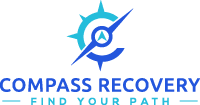Recovering from addiction is a profound achievement, but sobriety is not just about stopping the use of alcohol or drugs—it’s about building a fulfilling and meaningful life beyond them. A significant part of that process involves finding purpose and setting goals. Purpose gives your sobriety a sense of direction, while achievable goals help you make steady progress toward the life you want to live. Here, we explore how to find your purpose after addiction and create goals that support long-term recovery.
Why Purpose Matters in Sobriety
Purpose acts as an anchor, keeping you grounded and motivated during times of uncertainty or challenge. Without a clear sense of why you’re pursuing sobriety, it’s easier to feel lost or disconnected, which can increase the risk of relapse. By identifying what truly matters to you, whether it’s family, career, creativity, or personal growth, you’re better equipped to stay focused and resilient.
Steps to Finding Your Purpose
1.Reflect on Your Values
Spend time thinking about what is most important to you. This might include relationships, helping others, spiritual growth, or personal achievements. Journaling can be a powerful tool for uncovering your core values.
2. Explore New Interests
Recovery opens the door to discovering new passions and hobbies. Try volunteering, enrolling in a class, or picking up a creative activity like painting or writing. These activities can help you uncover what brings you joy and fulfillment.
3. Reconnect with Loved Ones
Relationships often suffer during active addiction. Rebuilding connections with family and friends can help you rediscover the joy of meaningful bonds and provide a sense of purpose through love and accountability.
4. Consider How You Can Give Back
Many in recovery find purpose through service to others. Sharing your story, mentoring others in recovery, or volunteering in your community can provide a sense of contribution and meaning.
Setting Goals to Support Your Purpose
Once you’ve identified what gives your life meaning, the next step is to set goals that align with your purpose. Effective goal setting is about being specific, realistic, and intentional.
1. Start Small
Break larger goals into smaller, manageable steps. For example, if your purpose is to rebuild relationships, start with a simple goal like scheduling regular phone calls or spending one afternoon a week with loved ones.
2. Use the SMART Framework
Ensure your goals are Specific, Measurable, Achievable, Relevant, and Time-bound. Instead of saying, “I want to get healthy,” set a goal like, “I will attend a yoga class twice a week for the next three months.”
3. Celebrate Progress
Recognize and reward yourself for achieving milestones, no matter how small they may seem. Progress is a reminder of your commitment and capability.
4. Be Flexible
Life in recovery can be unpredictable, so it’s important to adapt your goals as needed. If something isn’t working, don’t be afraid to reevaluate and adjust.
Compass Recovery: Helping You Navigate Your Purpose
At Compass Recovery, we understand that sobriety is about more than just staying clean—it’s about creating a life you’re proud of. Our team of experienced professionals is here to help you identify your goals, build skills, and find purpose through comprehensive treatment programs like our Day Treatment Programs. With holistic offerings like yoga, meditation, and sound healing, we support your mind, body, and spirit as you rebuild your life.
If you or someone you know is struggling with addiction, we’re here to help. Contact Compass Recovery today to learn how we can support your journey to a purposeful and sober life.
Call us at 844.844.2988
Locations:
- 975A Springfield St, Feeding Hills, MA 01030
- 65D Elm St, Hatfield, MA 01038







